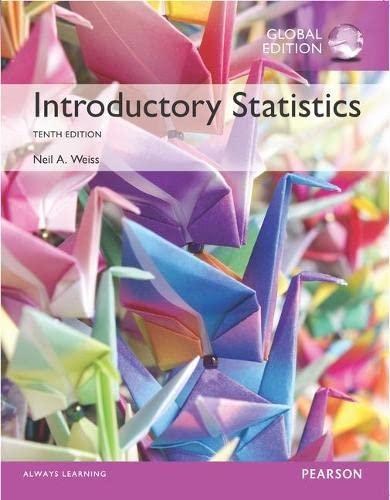In the article, Squeaky Clean Fossil Fuels (New Scientist, Vol. 186, No. 2497, p. 26), F. Pearce
Question:
In the article, “Squeaky Clean Fossil Fuels” (New Scientist, Vol. 186, No. 2497, p. 26), F. Pearce reported on the benefits of using clean fossil fuels that release no carbon dioxide
(CO2), helping to reduce the threat of global warming. One technique of slowing down global warming caused by CO2 is to bury the CO2 underground in old oil or gas wells, coal mines, or porous rocks filled with salt water. Global estimates are that 11,000 billion tonnes of CO2 could be disposed of underground, several times more than the likely emissions of CO2 from burning fossil fuels in the coming century.
This could give the world extra time to give up its reliance on fossil fuels. The following bar chart shows the distribution of space available to bury CO2 gas underground.
10,000 1000 800 600 400 200 0
In Storage Amount of CO2 that can be kept in different geological spaces Coal mines Oil and gas reserves Saline aquifiers Billion tonnes
a. Explain why the break is found in the third bar.
b. Why was the graph constructed with a broken bar?
* Reshaping the Labor Force.
Step by Step Answer:





